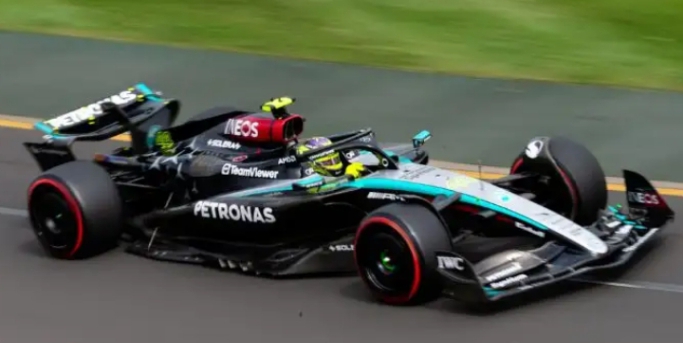Mercedes team principal Toto Wolff explained that the opinion of Lewis Hamilton on the W15 swung from being “the best in three years” to “undriveable” in the space of a session in Australia last weekend.
This follows on from the belief that Wolff, Hamilton and George Russell have all expressed that the current Mercedes runs on something of a ‘knife-edge’ when it comes to setting it up, and that while there is a strong car within it, unlocking its full potential is a difficult task.
Hamilton himself has said he’s feeling “surprisingly, pretty good” despite acknowledging it’s his “worst ever” start to a season in terms of results, after an engine failure ended his Australian Grand Prix early.
But after a free practice session in which he and Mercedes were competing at the front was followed by qualifying, when they were well behind the pace of Red Bull, Ferrari and McLaren in particular, Wolff admitted the W15 “transformed” from one session to the next, despite there not being much of a change in track conditions.
I think you should have heard [Hamilton] after FP3 this morning,” Wolff said to Fox Sports Australia in Melbourne last Saturday.“He said that the car is the best in three years, he had so much rear downforce and he feels confident.“And we didn’t change the car, track temperature changed by five degrees, believe it or not, so that’s nothing – and the car transformed from something that was the best in three years to something that is undriveable.
When asked how the team can explain such a sudden change, Wolff admitted: “Well, we have no idea, that’s part of the issue.“We have two and a half thousand people that work on these cars, half on the engine, the other half on the on the chassis, and we are looking at everything.
“And there’s something which our technology is not showing us because this window of performance is so narrow, where the aero works, or it doesn’t.“The wind picked up in the afternoon. That plays a role, but we haven’t really been able to pinpoint it.”




